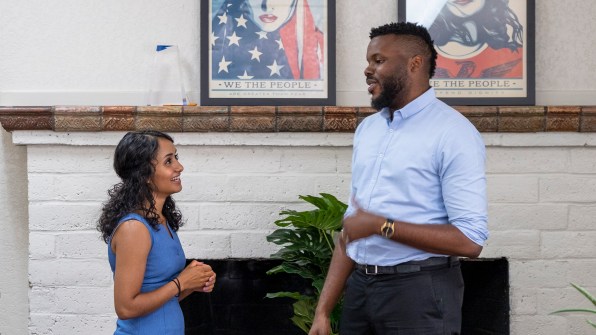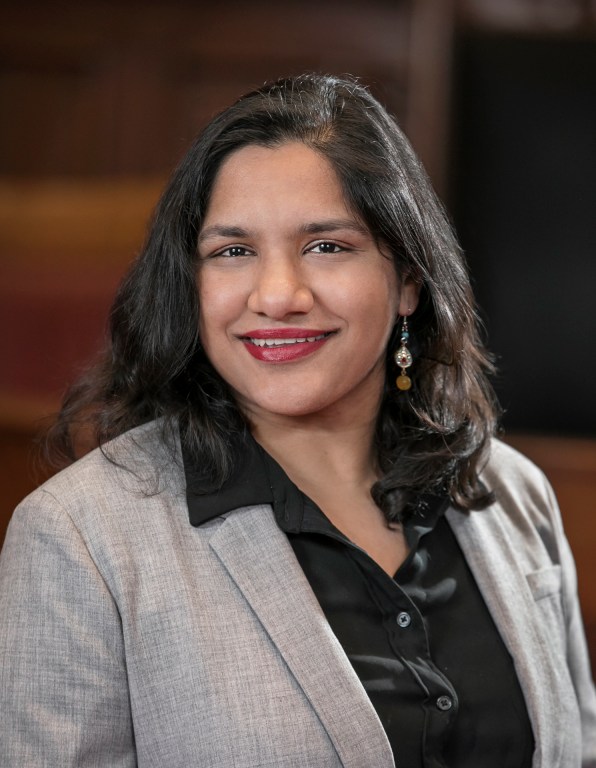 How these mayors are bringing guaranteed income to their cities
How these mayors are bringing guaranteed income to their cities
Fast Company, 07-14-21
(https://www.fastcompany.com/90655023/how-these-mayors-are-bringing-guaranteed-income-to-their-cities)
On the ‘World Changing Ideas’ podcast, we spoke to two mayors who launched guaranteed income pilot programs in their cities—and to a recipient of those supplemental checks.
Tomas Vargas Jr. used to work part time as a youth facilitator for convicted juveniles in Stockton, California. He also repaired cars and did other odd jobs. “I was sitting there, just trying to make the checks work,” he says. That was before he was randomly selected to be part of a guaranteed income pilot program: to receive a sum of $500 per month for two years, no questions asked.
That pilot laid the groundwork for more mayors around the country to follow suit, many of whom are part of Mayors for a Guaranteed Income, a coalition of 55 mayors, and counting, aiming to ease people’s financial burdens with supplemental income. The founder of the coalition, and that Stockton pilot, former Mayor Michael Tubbs, joined us on the World Changing Ideas podcast to discuss MGI, which won a 2021 World Changing Ideas Award in the Politics and Policy category.

Fundamentally, guaranteed income is an anti-poverty measure. “It comes from a Kingian tradition in terms of how do we eliminate poverty in our country,” Tubbs says, referring to Martin Luther King Jr., who decades ago proposed guaranteed income as a way to alleviate poverty. Tubbs also notes how it’s an idea that historically has been embraced by unlikely allies like economist Milton Friedman and former President Richard Nixon. (Today, though, Tubbs is still trying to get the first Republican mayor on board.)
Unlike universal basic income, which qualifies everyone, guaranteed income prioritizes those who’ve been stuck in “economic purgatory” for generations: those who struggle to survive on their income, yet are often are making “too much” to qualify for welfare. In this model, instead of meager government benefits, poorer residents receive cash, no strings attached—to be spent in the way they see fit for their families. “The idea is to turn notions of deservingness on [their] head,” Tubbs says. “They don’t necessarily need us to tell them exactly how to spend every single cent.”

Mayor Sumbul Siddiqui [Photo: courtesy city of Cambridge]Mayor Sumbul Siddiqui of Cambridge, Massachusetts, who also joined on the podcast, agrees: “You’re putting faith in your families,” she says. “We know they have the agency to do what they want with cash.” Siddiqui’s city, which suffers from extreme wealth disparity, is launching its own pilot, starting with a lottery this summer to draw successful candidates. Like many of the pilot programs, it’s targeted to a specific population, based on need. While some have sent their cash solely to Black fathers, or people recently released from prison, hers is for single caretakers.According to Tubbs, data collected from Stockton’s pilot has shown that people are spending the cash on essentials like transport, childcare, and clearing debts—as Vargas did. Vargas says it helped “tremendously,” not only financially but also mentally. “I was able to make better choices,” he says.
The intention is for that data, and more to come, to be presented as evidence to make guaranteed income a federal program. After all, pilots have limitations: They’re short-lived, and participation amounts to the luck of the draw for residents. Furthermore, budget-constrained cities are relying heavily on unsustainable private funding—such as the $18 million donated to MGI by Twitter CEO Jack Dorsey. The mayors are encouraged by glimmers of federal GI, such as the COVID-19 recovery checks, and President Joe Biden’s childcare tax credits of up to $300 per child.
But the coalition is pushing for something more robust and long-lasting. “I come at this unapologetically from the lens of: I don’t like poverty,” Tubbs says. “I don’t think we should have poverty. And a guaranteed income accomplishes that goal.”
You can listen and subscribe to World Changing Ideas on Apple Podcasts, Stitcher, Spotify, Google Podcasts, or wherever you get your podcasts.

